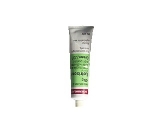Erectile dysfunction in men
Many men experience erectile dysfunction or ED at some point in their lives. ED is the inability to get or maintain an erection firm enough for sexual intercourse. It can be a frustrating and embarrassing condition that can also affect a man's self-esteem and confidence.
The causes of ED are varied and can include physical or psychological factors. Physical causes may include heart disease, diabetes, high blood pressure, and other conditions that affect blood flow. Psychological causes may include depression, anxiety, and stress.
If you are experiencing ED, it is important to see a healthcare provider to determine the underlying cause and explore treatment options. Treatment may include medications, lifestyle changes, or therapy.
Don't suffer in silence. Talk to your healthcare provider today about your ED and take the first step towards regaining your sexual health and confidence.
Symptoms of Erectile Dysfunction
Difficulty Getting or Maintaining an Erection
One of the main symptoms of erectile dysfunction is difficulty in achieving or maintaining an erection. This could be due to a physical condition or psychological factors such as stress or anxiety.
Decreased Libido
Erectile dysfunction can also cause a decreased interest in sexual activity, known as decreased libido. Men with decreased libido may have little or no desire for sexual activity and may struggle to become sexually aroused.
Weak or Soft Erections
Another common symptom of erectile dysfunction is weak or soft erections that are not strong enough for sexual intercourse. This could be due to a lack of blood flow to the penis or nerve damage.
Painful Erections
In some cases, erectile dysfunction can cause painful erections known as priapism. This is a medical emergency and requires immediate treatment to avoid damage to the penis.
Issues with Ejaculation
Erectile dysfunction can also cause issues with ejaculation such as premature ejaculation or delayed ejaculation. These issues may lead to decreased sexual satisfaction and may cause anxiety or embarrassment.
Conclusion
Symptoms of erectile dysfunction can vary from person to person and can have a significant impact on a man's sexual health and overall well-being. If you experience any of these symptoms, it is important to speak with your doctor to determine the underlying cause and discuss possible treatment options.
Causes of Erectile Dysfunction
Physical factors
There are a number of physical factors that can lead to erectile dysfunction, including:
- Obesity
- Diabetes
- Heart disease
- High blood pressure
- Prostate cancer treatment
If you have any of these conditions, it is important to speak with your doctor about how they may affect your sexual health.
Psychological factors
Erectile dysfunction can also be caused by psychological factors, such as:
- Anxiety
- Depression
- Stress
- Relationship problems
If you are experiencing any of these issues, it is important to seek the support of a mental health professional.
Lifestyle factors
Your lifestyle can also play a role in erectile dysfunction. Factors that can contribute to the condition include:
- Smoking
- Excessive alcohol consumption
- Drug use
- Lack of exercise
- Poor diet
To improve your sexual health, it is important to make positive lifestyle changes, such as quitting smoking, reducing alcohol consumption, and eating a healthy diet.
Diagnosing Erectile Dysfunction
What is Erectile Dysfunction?
Erectile Dysfunction (ED) is a condition where a man is unable to get or maintain an erection sufficient for sexual intercourse. ED is quite common, affecting millions of men worldwide. It can be caused by physical or psychological factors and can have a significant impact on a man's self-esteem and relationships.
Diagnosing ED
If you are experiencing symptoms of ED, it is essential to seek medical help. Your doctor will carry out a thorough physical examination and ask about your medical history. This will help to determine the underlying cause of your ED. Tests may include:
- Blood tests to check hormone levels or underlying medical conditions
- Urinalysis to check for signs of infection or diabetes
- A physical exam to check for abnormalities in the penis or prostate gland
- An ultrasound to check blood flow to the penis
Based on the results of these tests, your doctor can determine the best treatment plan for you.
Treatment Options for ED
There are several treatment options available for ED, including:
- Oral medications such as sildenafil, tadalafil, and vardenafil
- Penile injections or suppositories
- Vacuum erection devices
- Surgery to repair blood vessels or implant a device to assist with erections
Your doctor will help you select the most appropriate treatment based on the underlying cause of your ED and your overall health.
Treatment Options for Erectile Dysfunction
1. Medications
There are several prescription medications approved for the treatment of erectile dysfunction. These include sildenafil (Viagra), tadalafil (Cialis), and vardenafil (Levitra). These medications work by increasing blood flow to the penis, resulting in an erection that is sufficient for sexual activity.
It's important to note that these medications should only be taken under the guidance of a healthcare provider, as they can interact with other medications and have potential side effects.
2. Lifestyle Changes
In some cases, erectile dysfunction may be caused by lifestyle factors. Making changes to these habits can help improve symptoms. Some lifestyle changes to consider include:
- quitting smoking
- reducing alcohol consumption
- losing weight, if overweight
- exercising regularly
- managing stress
3. Vacuum Devices
Another treatment option for erectile dysfunction is the use of vacuum devices, which are designed to create a vacuum that pulls blood into the penis. This can result in an erection that is sufficient for sexual activity.
4. Surgery
In cases where other treatments have not been successful, surgery may be an option. Penile implants can be surgically placed in the penis, allowing for an erection to be achieved. This option should only be considered as a last resort, as it carries some risks and potential complications.
Overall, there are a variety of treatment options available for erectile dysfunction. It's important to work with a healthcare provider to determine the underlying cause of the problem and choose the most appropriate treatment option.
Prevention of Erectile Dysfunction
Healthy Lifestyle Habits
Erectile dysfunction can often be prevented or improved by making positive lifestyle changes. Maintaining a healthy weight, eating a balanced diet, and getting regular exercise can all help to prevent ED. Smoking and excessive alcohol consumption can also increase the risk of ED, so quitting smoking and moderating alcohol intake is recommended.
Medical Treatment and Medications
Some medical conditions and medications can contribute to erectile dysfunction, so it's important to address these underlying issues. For example, conditions such as diabetes and heart disease can affect sexual function, but managing these conditions with medication and lifestyle changes can help to prevent ED. Certain medications used to treat depression and high blood pressure can also cause ED, so discussing potential alternatives with a healthcare provider is recommended.
Communication and Counseling
Stress, anxiety, and relationship issues can all contribute to erectile dysfunction. Open communication with a partner and addressing any underlying psychological issues through counseling can help to prevent and improve ED. Seeking support and addressing any mental health concerns can also improve overall sexual function.
- Maintain a healthy weight
- Eat a balanced diet
- Get regular exercise
- Quit smoking and moderate alcohol intake
- Manage underlying medical conditions with medication and lifestyle changes
- Discuss potential medication alternatives with a healthcare provider
- Address any psychological issues through counseling and support
Overall, prevention of erectile dysfunction involves maintaining a healthy lifestyle, managing any underlying medical conditions, and addressing any psychological issues that may contribute to sexual dysfunction. Seeking support from a healthcare provider or counselor can help to improve overall sexual function and prevent ED.
Follow us on Twitter @Pharmaceuticals #Pharmacy
Subscribe on YouTube @PharmaceuticalsYouTube





Be the first to comment on "Erectile dysfunction in men"